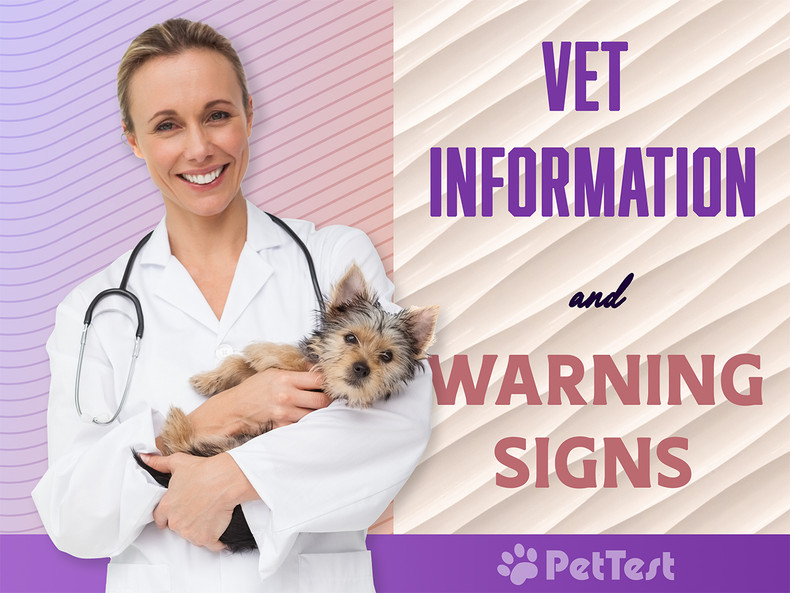Vet Information and Warning Signs
With the continuing COVID-19 pandemic, vets must follow COVID-19 protocols that make it hard to see the same number of patients per day that they previously did. We see this in the group every single day, members have yellow light warning signs and call the vet, only to be told that their dog cannot be seen for days, even after the clinic is informed that the dog is diabetic. And when there is an emergency (red light warnings) most members must go to an ER vet. We think that it is important to have a plan in place just in case your dog needs to be seen.
What are yellow light and red-light warnings?
Yellow Light Warnings require a phone call to the vet:
- Loss in appetite
- Change in appetite (dog suddenly has a voracious appetite)
- Excessive urination
- Excessive water consumption
Red Light Warnings require a phone call to the vet and an office visit:
- Lack of appetite
- Vomiting
- Diarrhea
- Ataxia (off balance, acting drunk, coordination problems)
- Seizures / tremors
- Ketones in urine
- No glucose in urine
Further explanation of the symptoms above and some common possibilities in diabetic dogs:
Loss in appetite / lack of appetite – Possible GI issues, pancreatitis, uncontrolled blood glucose levels, infection, kidney and liver issues.
Change in appetite – Uncontrolled blood glucose levels can cause the dog to have a voracious appetite. Cells are being starved of food (energy) since there is not enough insulin to open the cells to accept glucose.
Excessive urination – Uncontrolled blood glucose can cause excessive urination, the kidneys dump glucose into the bladder when glucose levels are over 180. UTI’s are also quite common in diabetics and frequent urination is a symptom of a UTI.
Excessive water consumption – blood glucose is elevated or uncontrolled, dehydration.
Vomiting – possible pancreatitis, GI issues, diabetic ketoacidosis (DKA).
Diarrhea – GI issues, pancreatitis, DKA
Ataxia – Hypoglycemia (low blood glucose), hyperglycemia (high blood glucose), vestibular disease.
Seizures / tremors – Hypoglycemia, hyperglycemia, stroke (not as common).
Ketones in urine – Diabetic ketoacidosis, which is an emergency and dog must be treated ASAP.
Negative glucose in urine – Glucose levels are too low, dog may be consistently hypoglycemic, liver issues.
The most common illnesses we see in diabetic dogs are pancreatitis, UTI and diabetic ketoacidosis. These also happen to all be illnesses that need to be treated immediately.
Having a plan in place makes sense and helps reduce the amount of stress that you have during a stressful event. You can make a copy of your log and hand it over to the vet staff that will be treating your dog. When Lucy was in kidney failure, I had a plan in place, had the phone number and address of ER vets in my area, and I stayed in contact with her primary vet via email. I also kept a log of medications given, times, blood glucose levels, appetite and any other notes I felt important for the vet.
PRIMARY VET: phone number, address, hours of operation.
SECONDARY VET (your primary vet may have a suggestion): phone number, address, hours of operation, directions.
ER VET / HOSPITAL: phone number, address, hours of operation, directions.
SECOND & THIRD ER VET / HOSPITAL: phone number, address, hours of operation, directions.
A log for the vet with the following information:
- Dogs general information (name, birthdate, sex, breed)
- Your information (name, contact information)
- Any illnesses / diseases your dog has
- List of past illnesses, for example: acute pancreatitis 08/2015, diabetes diagnosis 08/2015
- Medications, dosages, and times your dog is given meds
- Blood glucose levels, ketone levels
- Current symptoms and concerns
- Video or pictures (you can email these to your vet ahead of time, they are a great resource!)
Make sure when you call the vet or the ER hospital you tell staff that your dog is an insulin dependent diabetic. This is especially important information for them and can change the time in which they can see your dog.
This might seem like a lot of information to write down and pass along to the vet staff, but it may help cut down on the number of questions they have for you. I know it is easy to get frustrated during these very odd times but try to remember that the vet staff is doing everything they can with an added load of COVID-19 protocols and skeleton staff.
I hope that you all had a safe New Year’s Eve, and I hope that 2021 brings you all happiness and good health!
If you are looking for a Facebook community to join for support, I have been an admin for Diabetic Dog Owners for four years. You can also join Canine Diabetes Support and Information on Facebook as well.
For more conversations, photos, and giveaways check out PetTest on Facebook and Instagram.

